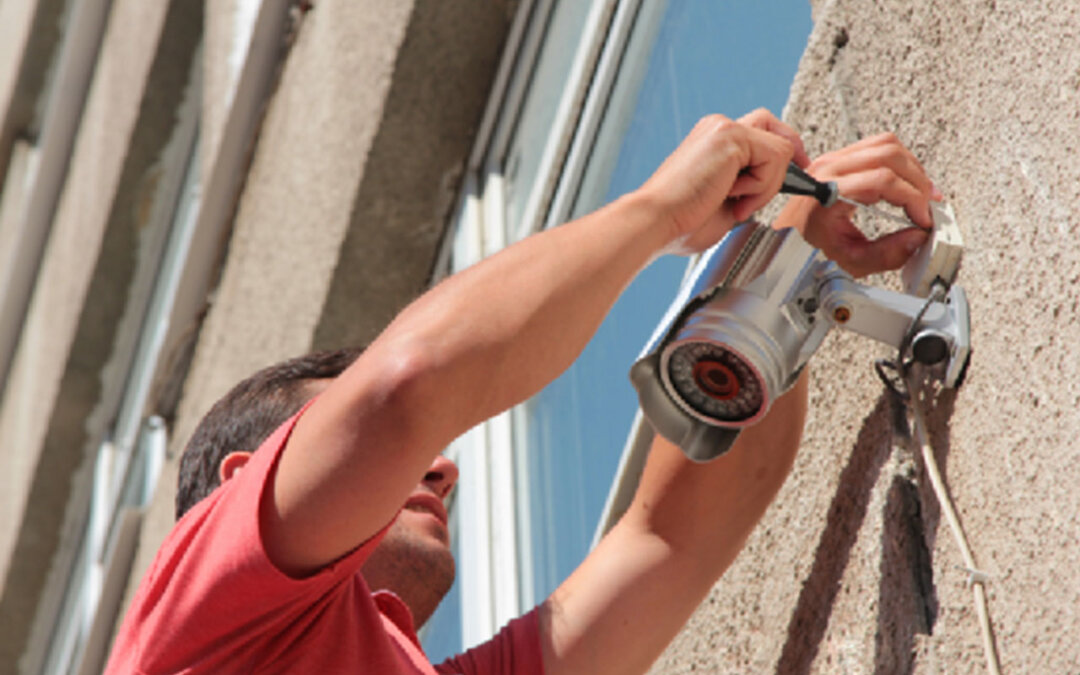If you’re like most people, security isn’t something that is on your “top priority” list. You might feel that it’s an unnecessary expense and that spending money on a system for your home just isn’t worth the investment.
Unfortunately, in today’s world where home invasions are increasingly common, having some form of protection installed in your home might be more important than you think.
Here are 10 things you need to know before buying a security system for your home:
1) What kind of alarm do you really want?
There are many different types of alarms that can be purchased, each one is meant to serve the needs of a certain niche within the industry. The most common alarms are:
Front door motion sensor alarm
If you’re looking for an alarm to monitor the goings-on in your front entranceway or entryway, this is the type of system that will best suit your needs. This type of system works by setting a magnetic “tripwire” just inside your front door and when the wire is broken, it sets off an alarm.
Detached garage motion sensor alarm
If you have a detached garage on your property or in your driveway, this type of system will provide protection to that area. It works by setting up a magnetic trip wire at the opening to your garage and when it’s broken, it sets off an alarm.
Open space motion sensor alarm
This system works for monitoring the open areas of your home such as backyard patios, etc. Again, it uses sensors to detect movements and when it senses someone trying to enter the monitored area (for example your yard), it sets off an alarm.
2) How do you want to be alerted?
Phone alert
If a motion sensor alarm is triggered, it also has the ability to call your phone so that you can listen in on what’s going on. You can call up from any number and if there isn’t an answer, the security company will try again every couple of minutes.
Remote alert
This alarm system will send you an alert via text or e-mail, so if you are on the go, you can still stay aware of what’s going on at your home.
Push alerts via phone app
This type of system allows you to receive push notifications to your phone when a security-related incident occurs at your home. It works by using a phone app that you install on your phone which then allows security companies to send push alerts directly to your screen when an alarm is triggered.
3) Do you want video monitoring?
Yes!
With this feature, you will be able to access the live feed from the security camera located at your home through your phone.
No!
If you decide that you don’t want video monitoring, the security company will only call when an alarm is triggered and not bother with updates throughout the day.
However, if it is something that interests you, there are companies that offer this service for free in return for allowing access to your home security camera.
4) How do you want to pay?
There are two different payment options for installing a security system in your home:
No-contract monitoring service
If you opt to have no contract installed at your property, it means that there is no obligation to continue the service with this company. You are free to switch companies once you find one that best meets your needs. This is the cheapest option but it doesn’t come with many perks.
Contract monitoring service
With this type of service, there will be a 24-month contract required at first before being allowed full access to the security system.
The company will charge you a flat fee of $99 for installation and additional fees of around $20 per month. If you’re willing to pay the yearly contract, your response time will be a bit faster than those who didn’t sign on the dotted line.
It’s possible that if you choose this option, it might be better to ask about a discount rate since new customers often receive 10% or 15% off the already discounted rate.
5) How do you want to ensure your safety?
Reliable home security system
This is one of those situations where it’s not recommended to go for the cheapest option. Although companies offering inexpensive services exist, they might be more likely to cut corners and end up neglecting all the small details that are important to home security.
Accredited company
This is where you want to make sure you opt for a reputable company with an excellent track record. The best way to assure this is through research, so check out their website and look for mentions of certification or accreditation.
You can view their reviews on sites like Angie’s List and make a list of the pros & cons of signing up with them. If you come across a few negative feedback, don’t be discouraged.
It might just mean that there were a few unhappy customers who had unrealistic expectations or received terrible service from the company representative.
Trusted contact information
Different security systems have different policies in regards to the contact information that they provide.
Most of the time, they will only disclose their main phone number and not their physical address. However, if you’re uncomfortable with this arrangement, there are ways around it.
Some companies allow users to create their own contact information which can be provided when needed.
6) Does your security system have a contract?
If you’re on the fence about whether or not to sign on the dotted line, there are a few things that you should keep in mind.
First of all, if the company is willing to offer you an excellent deal on top of cutting down on hidden fees, it’s likely that they benefit from those who sign the contract as well.
Secondly, look for a company that offers guarantees and refunds if you’re unhappy with their service even after signing up for a 24-month contract.
7) What kind of home security system do you need?
Low tech vs high tech: depending on your needs, different types of features might be important to you.
Standard features
These include window and door sensors, motion detectors, sirens, and backup batteries for when the power goes out. These are convenient and fairly reliable in the event that there’s an emergency in your home.
Advanced features
You might consider getting a combo package that includes fire, carbon monoxide or flood sensors. This might be necessary if you live in an area that has a lot of natural disasters.
Cameras are another popular feature, especially if your goal is to monitor the activity outside your home. The more advanced security systems also include features like remote access and communication with local authorities to assure faster response times.
8) Do you want a wireless system or a hard-wired system?
Wireless systems are cheaper and easier to set up due to their lack of cables. However, they might not last as long since the batteries tend to be weaker compared with wired security systems.
9) You need expert installation
If you don’t know much about wiring and other technical details, consider looking for a company that can provide you with an installation service.
You might miss out on some discounts if the company offers these deals to people who are capable of setting up their own security system, so it’s important to ensure that they have this option available.
10) Can you monitor your home security system remotely?
This is an important feature to have whenever you’re out of town or unable to monitor your home yourself. If it’s not at the top of your list, make sure that it’s one of the company’s advertised features.
Look up whether they offer live streaming, notifications & alerts, or just access via a mobile app. You can also opt for a service that offers a professional monitoring service.
Are you looking for a security system?
There are many different types of home security systems, and it’s important to know what they all do before making your decision.
We’ve compiled this list of 10 things you need to know about home security systems so that when you go shopping, you can make the best choice for your family.
You will be able to choose the right system for your needs by reading through this article. It is packed with information on how these systems work and why they might or might not be right for you.
If there is anything we didn’t cover in our guide, please feel free to contact us at any time! We’re here to help! And if we don’t have an answer, we’ll find someone who does!



